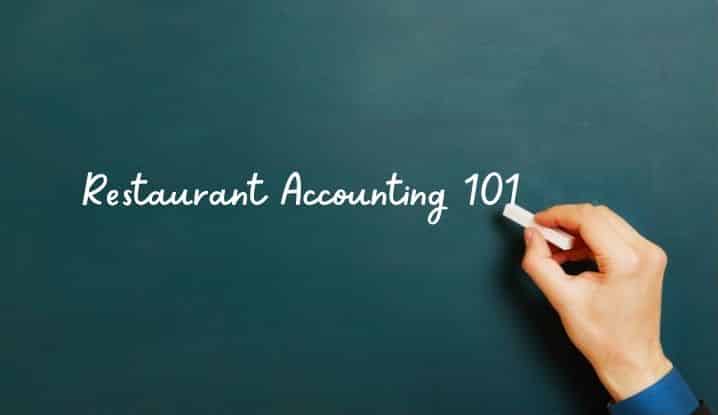6 signs it’s time to take the leap from bookkeeping to accounting software
As a restaurant operator, you are the backbone of the restaurant. You most likely started out passionate about serving people on their special days and being a part of creating memories for your patrons. But on a Monday morning when you arrive early to the back office to a pile of invoices waiting to be processed and last night’s food inventory spreadsheet is still sitting on the clipboard waiting to be entered, you might wonder why you signed up for this. This is not the part of your job that you are passionate about.
While we are aware of the importance of bookkeeping and accounting services, keeping up with your restaurant’s finances is flat-out tedious work. Many restaurants start out using spreadsheets because they are basically free, easy to use, and highly customizable. You can use a spreadsheet for almost any function in your restaurant from inventory, invoicing, prep lists, food costing, scheduling, accounting, you name it. They can even be easily fed information from your POS machines to help you make sense of all that data you are collecting.
However, at some point, you may question whether it is time to purchase restaurant accounting software to get you out of the office and back to concentrating on good food and great service. This could be when you realize that there really isn’t room in the bankroll for a few full-time people to simply plug numbers into boxes. Or perhaps this may be when you feel that you are not taking full advantage of the data you are collecting already to grow your business to its full potential.
What is the relationship between bookkeeping and accounting?
Bookkeeping and accounting are two different fields of work. However, they are often interlinked in business.
What is the difference between bookkeeping and accounting?
Bookkeeping is responsible for the recording of financial transactions. Accounting software can go beyond this by interpreting, classifying, analyzing, reporting, and summarizing financial data. One of the biggest differences between bookkeeping and accounting is that accounting involves interpreting and analyzing data and bookkeeping does not.
What are the similarities between bookkeeping and accounting?
Bookkeeping and accounting can appear to be the same profession to the untrained eye. Let’s discuss three similarities between bookkeeping and accounting.
- Both bookkeepers and accountants work with financial data.
- To enter either profession you must have basic accounting knowledge. However, some bookkeepers may not have the education required to handle these tasks, but this is possible because most accounting software automates reports and memorizes transactions making transaction classification easier.
- Sometimes, an accountant records the financial transactions for a company, handling the bookkeeping portion of the accounting process.
So, how do you know when it is time to move from bookkeeping to an accounting software? Here are a few indicators that it may be time to move beyond bookkeeping services:
- Labor for performing managerial duties (such as entering data and manually running reports) is costing more than the software fees would cost. Software that can run a report at the click of a button or automatically send alerts to your mobile device will get you and your managers out of the back office and back onto the floor.
- Auditing issues are becoming a burden due to inconsistencies from data collected by managers. Software will create and enforce a workflow that ensures that each user/location is providing the same information by the same deadlines.
- Data integrity due to human error is an issue. Information being manually written, then later entered into a spreadsheet is more likely to contain errors as time passes from the action, or as it changes hands.
- You are experiencing logistical issues due to your data being stored in multiple locations. A software solution will eliminate the manual gathering and consolidating information from multiple locations. Information can be entered from anywhere and be stored in one central location.
- Cost of Goods Sold (COGS) are consistently too high and you can’t determine why. Solutions that include COGS analysis can help you pinpoint where your costs are off so that you can make informed decisions.
- Margins are low. Having access to real-time information such as sales, COGS, labor, etc. can help you save money. An alert that you have an employee about to go into overtime saves you money rather than seeing it on a report at the end of the shift (or worse, at the end of the pay period).
If you decide it is time for you to take the leap to a restaurant accounting software, be sure to do your research. Many software companies offer basic, low-cost packages that may be just enough to alleviate some of the office work that you or your managers are performing. Others offer individual modules that let you choose to purchase only what you need. For example, if you are only having issues with inventory and scheduling, you should start with just those units. Be sure to ask for references as well. Talking to a colleague who is currently using the solution you are considering can help alleviate any concerns you may have.
If you would like to increase efficiency and boost profits, consider automating your restaurant food purchasing process. Restaurant365 incorporates restaurant accounting software and restaurant operations software into an all-in-one, cloud-based platform. It includes tools for financial reporting, operational reporting, inventory control, scheduling, and more.



